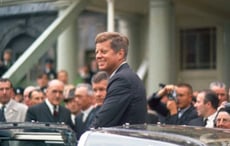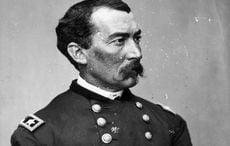Tory leader David Cameron will take the keys to 10 Downing Street after a British election that left the three major parties in an extended stalemate.
Tories have rarely been good news for Ireland and Irish America, and it remains to be seen if the Cameron era will be all that different.
We all remember the awful days under Margaret Thatcher, especially in Northern Ireland, when her stance on the hunger strikes led to a massive reaction within nationalism that Sinn Fein rode all the way to power.
Then there was ex-Prime Minister John Major, who was a big improvement but still dallied far too long when the Irish peace process was underway, and prevented a much speedier resolution of major issues such as decommissioning by refusing to budge on his unreasonable demands.
Little is known about Cameron other than the classic high Tory Eton and Oxford background and the privileged life that he has lived up to now.
He has already dirtied his bib on the North, allowing his Northern Irish spokesman Owen Paterson to hold secret talks in January at Hatfield House in England involving the two main Ulster Unionist parties and the Tories.
The fact that his party was so willing to break the consensus under Labor that the British government try to act in a neutral fashion when it came to Northern Ireland was much commented on at the time.
These talks prompted speculation that the Tories were attempting to create a pan-Unionist group to oppose Sinn Fein and the SDLP in the general election of 2010.
As it turned out, the Tories will not need the Ulster Unionist votes, as their liaison with the Liberal Democrats means that they will have a sufficient majority in the Commons.
However, there is no way that Patterson should be Northern Ireland secretary after such an outrageous and one sided act.
How will he have any credibility with Northern Ireland Nationalists after such a move? Surely Cameron will think better than putting him back into a job he has already disqualified himself from?
Sure, the position of northern secretary is no longer the central job it was since Northern Ireland now has its own elected government. But there are very important issues such as the finances promised by soon to be ex-Prime Minister Gordon Brown to help that government.
Cameron stated during the election campaign that Northern Ireland was one of the regions where the subvention from central government had to be looked at.
That was surely bad news for Northern Ireland, and it remains to be seen if Cameron decides to follow up on it.
He will have his hands full in a plunging economy and with prospects bleak for a quick recovery.
This is by no means a safe and secure new British government, and the left leaning Liberal Democrats may be destroying their future prospects by siding with a party that has diametrically opposed policies in many areas.
How all that plays out remains to be seen. The era of Tony Blair and Gordon Brown is now past in British politics, a remarkable era for Ireland where we saw a peace settlement, an apology for the Famine and a pair of leaders who worked heart and soul to achieve political progress there.
Let’s hope Cameron does not undo any of that great work. That is the best we can hope for.




Comments